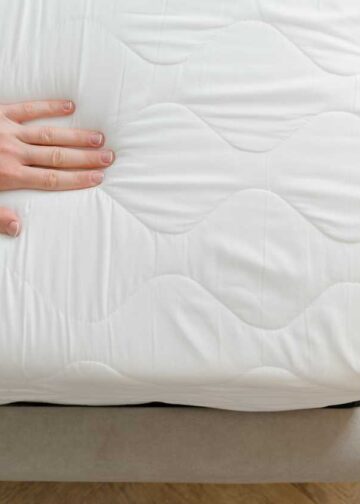Sleeping is very important for a person. It has direct impacts on a person’s everyday life. Due to lack of sleep, a person can suffer from various issues that have negative effects on your body, mind, and overall health. So, it is very important to ensure proper sleep for yourselves.
Required sleeping hours vary from age to age. In this article, we will help you by informing the best sleeping schedule based on age. Let’s start our discussion step by steps:
Sleeping Schedules for Different Ages People
The National Sleep Foundation makes a sleep schedule for different ages of people. Below we present theirs making age-based sleeping schedule through a table:
| Categories | Age | Sleeping Hours Needed | May Be Appropriate Sleeping Hours | Not Recommended |
|---|---|---|---|---|
| Newborns | Newborn to 3 Months Old | 14- 17 Hours | 11- 19 Hours | Less than 11 hours
More than 19 hours |
| Infants | 4 to 11 Months Old | 12- 15 Hours | 10- 18 Hours | Less than 10 hours
More than 18 hours |
| Toddlers | 1 to 2 Years Old | 11- 14 Hours | 9- 16 Hours | Less than 9 hours
More than 16 hours |
| Preschoolers | 3 to 5 Years Old | 10- 13 Hours | 8- 14 Hours | Less than 8 hours
More than 14 hours |
| School-Aged Children | 6 to 13 Years Old | 9- 11 Hours | 7- 12 Hours | Less than 7 hours
More than 12 hours |
| Teenagers | 14 to 17 Years Old | 8- 10 Hours | 7- 11 Hours | Less than 7 hours
More than 11 hours |
| Young Adults | Young Adults (18 to 25 Years Old) | 7- 9 Hours | 6- 11 Hours | Less than 6 hours
More than 11 hours |
| Adults | Adults (26 to 64 Years Old) | 7- 9 Hours | 6- 10 Hours | Less than 6 hours
More than 10 hours |
| Older Adults | Older Adults (65+) | 7- 8 Hours | 5-9 Hours | Less than 5 hours
More than 9 hours |
| Source: National Sleep Foundation |
Here we are sharing and video below about how to fix the sleeping schedule from Better Than Yesterday YouTube channel, it may help you.
Signs You Aren’t Getting Enough Sleep
You can notice many signs due to a lack of sleep. It has negative effects on your performance and productivity. American Academy of Sleep Medicine explains how a lack of sleep affected a person’s body and mind. At the same time, it also increases the risk of various diseases. Below we mention some signs that you may face due to lack of sleep:
- Drowsiness.
- Anxiety.
- Irritability.
- Yawning.
- Inability to concentrate.
- Memory problems.
- Less physical strength.
- Decreased ability to fight off infections
- Hallucinations (in extreme cases).
Besides, these many signs start for insufficient nights’ sleep.
Health Risks from Lack of Sleep:
A analysis of sleep deprivation studies found that lack of sleep has very bad effects on your body’s brain and overall health. It affects are:
Physical Symptoms
Some physical side effects of lack of sleep:
- Fine Lines.
- Dark Circles.
- Puffy Eyes.
- Skin Issues.
Cognitive Function
You can face many cognitive side effects for lack of sleep included:
- Delayed Reaction Times.
- Increased Distractibility.
- Decreased Energy.
- Restlessness.
- Decreased Coordination.
- Poor Decision Making.
- Increased Errors.
- Forgetfulness.
- Attention Ability.
- Long- Term Memory.
- Decision Making.
Health Issues
Lack of sleep also increases some serious health issues like:
- High Blood Pressure.
- Heart Disease.
- Obesity.
- Increased Cortisol.
- Diabetes.
- Depression.
Standard Sleeping Schedule for Different Ages People
We make various research to find out the best sleep schedule based on age. After various research, we prepare a standard sleep schedule for you. Below we present our finding with a graph chart for your better understanding:
This graph shows us that 0-3 months old newborn baby requires 17 hours of sleep that is maximum than all other ages people sleep hours. 4-11 months older infants require 15 hours of sleep. A 1-2 years toddlers need 14 hours of sleep. 3-5 years of preschoolers require 13 hours of sleep. 6-13 years of school-aged children’s sleep requirement is 11 hours. A teenager needs 10 hours for sleep. 18-25 years young adults and 26-64 adults both require 9 hours of sleep. 65+ older adults require 8 hours for sleep. Older adults require the lowest sleeping hours among all of the ages of people.
We make this requiring a sleeping hour schedule for different ages people on the basis of our finding information. Now it’s your turn to make the best sleeping schedule according to your ages. Don’t forget to follow our above grasp chart in that case.
Tips to Get Enough and Sound Sleep
It is almost impossible to carry out whole the following day without having enough sleep at night. A study by The National Institutes of Health (NIH), find that 1 in every 3 Americans suffer in insomnia due to lack of sufficient hours of sleep. Sleep-related organizations, doctors, health experts, medical researchers suggest may ways for getting proper sleep.
Here we discuss some tips that might be helpful for you to get enough and sound sleep:
Follow the same sleeping schedule
Always try to follow the same sleeping schedule. Go to the bed at the same time each night, and get up at the same time each morning. As an example, if you usually go to the bed at 10 pm. and wake up at 7 am. then do it regularly. Maintain the regular sleeping schedule at weekends and holidays too.
Don’t take too much day naps
Day time naps are not helpful for night’s sleep. Too much day napping hampers your night sleeping hours. For this reason, you stay awake till late at night. So, it is ideal to not take any naps after 3 pm. and be careful that your napping period no longer than 20 minutes during the day.
Stay away from alcohol and caffeine
Alcohol and caffeine both are not good for the health and as well as your sleep cycle. If you take any of them at night or late in the day then you may suffer from more night sweats, headaches, nightmares, frequent awakenings, and other issues. These are not good for your sleep cycle. As a result, you don’t get proper sleep at night and feel much less restful. It also affected your day’s performance.
Avoid cigarettes completely
Many people think that having a cigarette in the middle of the night or before the bed relaxes them but it is completely a misconception. Cigarettes and other nicotine affected your sleep cycle too badly. It prevents you from fall into the deep asleep and stays to that. Side effects of cigarette and nicotine as the same as alcohol and caffeine. Cigarette and nicotine also cause problems like more night sweats, headaches, nightmares, frequent awakenings, and other issues during sleep. So, completely avoid cigarettes and other nicotine for getting better sleep at night.
Get regular exercise
Regular exercise keeps your body fit and that also helps you for the night’s sleep. When you spend a few hours for exercise in the day then naturally your body becomes tired and needs rest. This exercise will be very effective for your night’s sleep. It helps you to quickly fall into a deep sleep at night. If you have don’t time for exercise then at least try some gentle yoga poses regularly at the home. Yoga can be a solution to fill the exercise gap. But keep in mind that not do any exercise within 2-3 hours of bedtime.
Don’t eat a heavy meal before going to bed
It is ideal to take your dinner a minimum of 3 hours before go to the bed. It will allow your body to complete the whole digestion process properly. It also gives you a comfortable feel when you go to the bed to sleep. But if you take your dinner just a few minutes before go to the bed then you may feel uncomfortable on the bed. It can cause many diseases like weight gaining or gastric related issues. Nothing wrong to take a light snack before bedtime.
Make your bedroom suitable for night’s sleep
You need to create a sleeping environment in your bedroom. It will improve your sleeping conditions. So, it is important to adjust your bedroom temperature and upgrade your blanket, bed, pillow, or mattress before go to the bed. Always keep your bedroom neat and clean. An ideal bedroom has facilities like comfortable, dark, quiet, and not too warm or cold. These types of bedrooms provide you the best environment for sleep and also ensure proper sound sleep for a person. So, improve your bedroom’s condition and make it suitable for night’s sleep.
Come into the bed with fully relaxed
Come to the bed without any stress or tension. Some people think about many things when they are on the bed. To be honest it is not got the sign for getting proper sleep. It will harm their sleeping hours and causes insomnia. You need to be calm and relaxed during your sleeping time for getting a sound sleep on the bed.
Conclusion
We hope our article will be helpful for you to know the best sleeping schedule based on age and other included information. Please consult with a doctor if you face any sleeping related issue for a long time.
- “Sleep Like Royalty: Discover the Lucid 12″ Cal King Mattress!” - February 14, 2024
- “Is Your Mattress Past Its Prime? Find Out Now!” - February 11, 2024
- Sleep Better Every Season: Seasonal Sleep Tips - January 26, 2024









